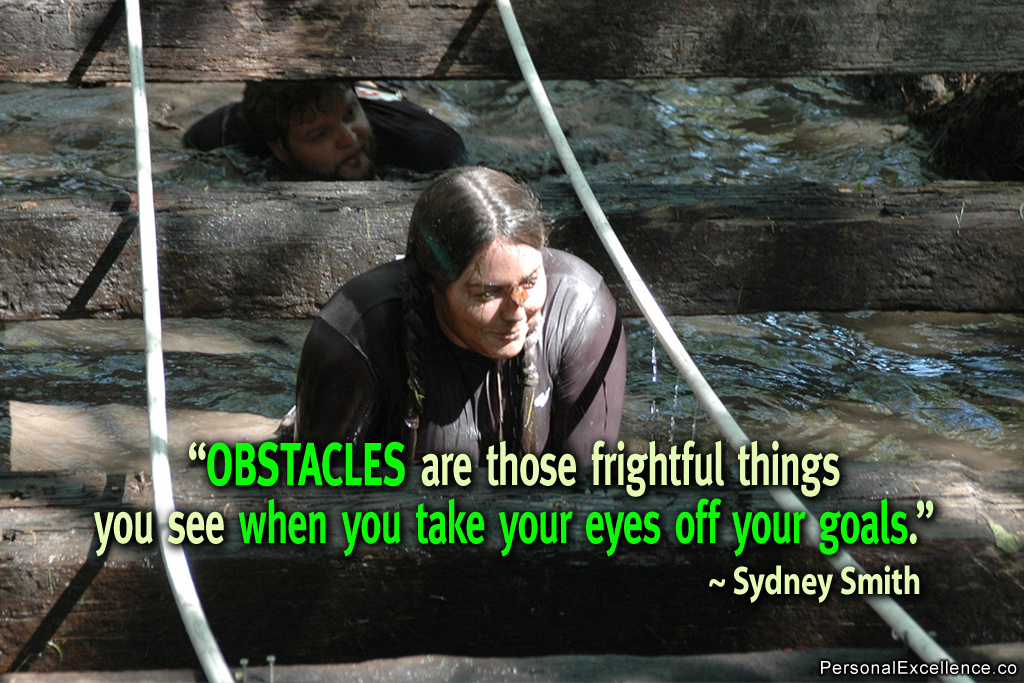
(Image)
“Dear Celes, I really love reading your blog. You are my role model! I am actively working on revamping and changing my life with the help of your blog.
Celes, I have a huge problem. I am abusive. I have made it my duty to stop cursing and stop raising my hands to my partner. But yesterday I snapped and hurt my partner again — I REALLY do not want to do this. I grew up in a household with domestic violence and I wish to be better than that.
However, my partner frustrates me sometimes and I feel as though she never listens to me — she always denies her mistakes or apologizes but does not mean it. I feel heartbroken that we are hurting each other. I love her. She has forgiven me but I want this to stop once and for all.
Your advice will be very much appreciated.” — Enchanted
Dear Enchanted, thank you for sending this letter. I want to applaud you for sending in this in because it takes courage to seek help on a matter like this. As you know, there is a strong stigma surrounding abuse, for both the victim and the abuser. Yet you have bravely sent in your question and I’ll do my best to assist you.
Laying Out the Problem
Let’s try to break down the problem here:
- Your partner frustrates you sometimes.
- In response, you become abusive sometimes, which can include cursing and raising your hands to her.
On #1, this is understandable. All relationships have their moments of frustration. My husband and I have moments when we frustrate each other too. Usually we handle these in a variety of ways from letting it pass to discussing to arguing, but we always try to resolve them and reach a positive place.
But #2 is an issue. Because as much as someone frustrates us, physical violence isn’t the way to handle the situation, whether the person is a stranger or a partner. One may say that it’s worse when the violence is meted out to your partner because this is someone you love, who trusts you not to inflict harm on him/her.
The good thing is that you recognize that (1) this abuse is a problem and (2) you want to stop it. There are abusers who feel that abusing others is okay and they are entitled to violence against their partner. These people have a separate problem altogether. You clearly do not think that way. So how do we tackle this?
Understanding the Source of the Physical Abuse
First, let’s understand the source of the abusive behavior. As we have established above, the source isn’t that your partner frustrates you or her frustrating behavior (that she never seems to listen to you). There are many couples who face problems, including feeling that their partner isn’t listening to them, yet it doesn’t result in violence. Or you can put someone else in your position, in this exact situation, and he/she would probably feel irritated, but not get violent.
The source is something else, and we’re here to understand what.
Enchanted, you mentioned that you grew up in an abusive household and I feel this could well be a strong link to your abusive behavior. According to studies,
- About one-third of people abused in childhood will become abusers themselves.[1]
- Men who as children witnessed their parents’ domestic violence were twice as likely to abuse their own wives than sons of non-violent parents.[2]
- Children of domestic violence are three times more likely to repeat this cycle in adulthood.[3]
Why is this so? That’s because our childhood years are our most formative years. That’s when we form a big chunk of our life scripts, what I call childhood stories, until we consciously rewrite them later. So imagine a child who grows up in an abusive household. The subconscious beliefs formed become something like
- “It’s okay to use violence on others.”
- “Using violence on loved ones is a normal behavior” (because the child’s parents used it on him/each other).
- “I can use violence to express rage.”
- “Violence can be used if the situation calls for it.”
- “Violence is a way to exert control.”
Even if the child is later educated in school/society that violence is a no-no, this will not override his/her fundamental childhood beliefs — especially if they are deeply embedded, especially if the child never got to work through these false beliefs.
I’d like to stress that such beliefs can develop even if the child didn’t grow up in an abusive family. It could be from being a victim of a violent crime, from childhood neglect, from growing up in a verbally abusive family, from being in a broken household, or from being bullied.
As a result, you can have situations where the child, now grown up, is completely nice and gentle. You can’t tell that he grew up in an abusive family or that he’s prone to violent tendencies. He is in total control of his behavior and he genuinely cares for others. (I use the male pronoun for simplicity. A woman can a perpetrator of domestic violence too.)
However, when he gets riled up, this is when anger takes over and things get ugly. His childhood conditioning takes over as he starts shouting at his partner (or child), yelling and perhaps hitting things and hitting him/her. It’s like he’s a demon possessed. He says things that he doesn’t normally say and he does things that he would never, ever do. Alcohol aggravates this behavior as it lowers inhibition and rational thought, and causes the deeper issues to surface.
When everything is over and the dust settles, he begins to deeply regret what he did, said. He apologizes and vows never to do this again. And he really tries his best. But somehow there will be something that trips him down the road, resulting in the same cycle all over again. This is known as the cycle of violence.
To those of you who can relate to Enchanted’s problem, does this feel familiar?
1) Violence is Not the Start of the Problem
The first thing I’d like you to understand is that violence is not the start of the problem. Violence is the tip of the problem, albeit a very extremely serious tip with grave consequences.
The real problem started way before the violence surfaced. It could be when you witnessed or was at the receiving end of domestic violence in your household. It could be when you made certain conclusions about yourself and the world after experiencing the abuse. These incidences, combined with other issues/beliefs, brewed over time to give rise to abusive behavior.
Hence, when the abuse happens, it’s because there has been a certain build up of pain, angst, and grievances, as well as a lineup of preconditions (like abusive beliefs), that results in the lashing out. This is why the abuse occurs despite your best effort — it’s often the final display in a series of unresolved issues.
By saying this, I’m not in any way excusing the abusive behavior. Your partner has physical and emotional pain that she now needs to live with, as do you — but understanding this is crucial to get resolution.
As a result, working on the abusive tendency only isn’t going to solve the problem. You need to get to the root of the issue. Because of that, if you are abusive, I recommend you get professional aid as resolving this will take time. I will, however, keep writing this article to give you a general guide.
2) Understand What’s Triggering the Violence
There are usually triggers to violence. If not, you would be violent to everyone 24/7 which isn’t the case. (There are people like that and they obviously suffer from a different problem.)
Our goal is to understand what these triggers are. It doesn’t mean that these triggers are the issue though. Like I mentioned, violence is the tip, not the start, of the problem. Likewise, these triggers are merely catalysts of the abuse. There are certain pre-existing issues causing the violence to occur. Knowing what these triggers are will give us insight into these deeper issues.
I have an exercise for you:
- Get some quiet space with yourself.
- List the past three incidents when you got violent with your partner (or kid, or family member). If there’s been one incident in total, then work with this one.
- Think about what happened in each incident before you got abusive. Perhaps your partner wasn’t listening to you, said something that insulted you, or did something that pissed you off. Write this down.
- Pick the incident where you had the biggest reaction. Imagine you are in the situation right now, getting abusive. Ask yourself,
Why am I getting violent?
- Type the answers that follow. Think of it as having a conversation with yourself, and keep probing until you get to the root reason of the violence. Be prepared for strong emotions surfacing. You’ll know the root cause when you reach there.
Take for example, someone who gets abusive when his partner refuses to listen to him. Here is a set of possible answers:
- Why am I getting violent?
- Because I’m very angry
- Because she refuses to listen to me
- Because she keeps rattling off even though I’ve told her to stop
- Because she refuses to listen to me
- Because it’s the only way to get her to stop
- Why am I getting violent?
- Because it’s the only way to make her pay
- Because otherwise she won’t know how serious I am
- Because I hate her
- Why am I getting violent?
- Because I don’t know what other way to get through to her
- Because I’m already tried my best
- Because I’m at my wits’ end
- Because I don’t know
- Because I don’t know better
- Because I’m a pile of shit
- Why am I getting violent?
- Because I hate myself
- Because I don’t know what else I can do
- Because I just want her to listen to me
- Because I feel like I’m alone in this world
- Why am I getting violent?
- Because I just need her to listen to me
- So why violence?
- Because if I don’t use violence, I don’t know if she will ever listen to me. I may never get my point across. I may never be heard and understood.
- So why violence? Because you have no right to use violence.
- Because I don’t know any other way. Violence is the only way I know to get heard.
- Why is it important to get heard?
- Because if I don’t get heard, I don’t exist. I’m not a real human being.
The answer is out: as it turns out, the person in this example gets abusive because he is screaming to be heard. If he is not heard, he becomes non-existent; a non-existent human being. This thought terrifies him and he cannot accept it. So he desperately lashes out in physical violence, screaming and crying for the one person who matters to listen to him: his partner.
Does this justify the violence? No of course not. Violence is not justifiable under any circumstances, unless it’s self-defense. The above is meant to understand the trigger for the person’s abusive behavior. Of course when you think about it, it doesn’t make sense because not only does violence not help one get heard, but it will make any trusted communication difficult in the future due to fear and trauma. But many deep personal issues are not logical and stem from emotional difficulties. It’s important to recognize and understand them to start the healing process.
Besides this, there can be other reasons for domestic violence. Such as
- Using violence to keep love by your side;
- Using violence as an act of superiority and to create power over your victim;
- Using violence to release your pain;
- Using violence as an act of vengeance, to make your partner “pay” for a wrongdoing (say, infidelity); and
- Using violence to feel that you’re wanted/needed.
Continue the exercise for the other two incidents. If you have more incidents to dig into, repeat with them. Keep doing this until you’ve uncovered all the root causes of your abusive tendencies.
3) Deal with the Root Issues
Depending on your results, you can have multiple factors driving your abusive behavior. These factors can be different or related. Each factor likely deals with a deep personal issue, possibly linked to the trauma you experienced as a child. Get down to the root of each root issue (yes, there are roots to roots) and understand how it came about.
Let’s say you have been using violence to get heard. Your reason is that if you don’t get heard, you feel that you don’t exist. Some questions to dig into are
- Why do you have this belief?
- What makes you think that you don’t exist?
- When did this thinking start, and why?
- How can you start “existing” in this world?
Or let’s say violence is your way to keep love by your side. You feel that you lack love and you cannot stand the thought of not having someone with you. Some questions to think about are
- Why do you lack love?
- What’s keeping you from feeling love?
- What’s love to you?
- How can you start loving yourself?
Tackling each root will likely open a floodgate of emotions: anger, bitterness, hatred, pain. It will also open up a flood of childhood memories and unhappiness. While uncomfortable, it’s necessary because this is the s*** that was not processed before, that subsequently led to your violent behavior today. What’s different is that you’re now an adult, stronger and more conscious of who you are. What was confusing before can now be properly analyzed as you are able to dissect and understand them.
The above will take time. You need time to work through grief, pain, anger, hate, and perhaps even loss. I recommend you to read my How To Deal With Anger (series), which is on removing anger from your life and identifying deeper issues that drive anger in us.
In any case, the self-healing must happen, first and foremost, before you can expect a fully functional relationship with your partner. You must work on your self-love before turning to your partner for love. You must work on your issues on “being heard” before expecting your partner to listen to you. You must work on neediness issues instead of turning your relationship into a needy one. Because unresolved internal issues will ripple out to your relationship with your loved ones — it’s not a coincidence that your inner struggles have impacted your life. When you heal yourself, you make it possible to have a meaningful relationship with others.
4) Use Coping Strategies in the Interim
As the healing will take time, it’ll be good to have coping strategies to manage the abusive behavior. I recommend the following:
- As there is an unhealthy dynamic between you and your partner right now, I recommend you limit physical contact, at least until you feel that you have made enough headway in your recovery such that the abuse will not recur. This is really for your safety and her’s (or his). With the internet and smartphones, it’s easy to still be in touch while not being physically by each other’s side. If you are spouses, consider living in separate places (like with your own parents). Time apart will also help you focus on solving your inner issues.
- Of course, it doesn’t mean that you must cut off complete contact. Keep your partner in the loop of your discoveries. Involve her so that she can encourage you and be a part of your healing process.
- Should you need to meet,
- Meet in public spaces. If not, have at least 1-2 other people (adults) in your company.
- Have your partner save a few emergency helplines on speed dial and keep her phone on her at all times. She should call them should there be anything amiss.
- If you feel anger stirring in you and your abusive side surfacing, get as far away from your partner as possible. Leave the place. Journal the questions I provided in Step #2. Write as much as you need and let the angst flow through the words. Get to the root of why you’re suddenly feeling the need to be violent. Is it a new root? Or something you’ve already uncovered but have not fully addressed? Address it as per Step #3.
- Your partner should call a domestic abuse helpline to receive counseling as a victim, so she is better equipped to deal with abuse situations.
5) Recognize the Sacredness of Your Partner’s Body
As you work on your self-healing, I want to bring attention to the sacredness of the human body. One of the factors of domestic violence is that the abuser feels like they “own” the victim’s body and they have the right to do whatever they wish to it. This belief is subconscious rather than conscious, especially if the abuser does not consciously want to abuse.
Understand why there’s a part of you that is okay with hitting your partner. You may have these answers:
- “Because she’s a part of me”
- “Because I can do whatever I want with her”
- “Because she’s my spouse/partner and hence she’s ‘mine’“
- “Because she says she loves me and hence she’d be okay with that. She’d understand.”
- “It happened before and she forgave me. So, she’ll forgive me again even if I lose control.”
Go through each statement one by one and ask yourself if it’s really true.
Because while she is your partner, that doesn’t give you the right to hit her or feel like you can “control” her. Your partner is an individual human being, as are you. Her body is sacred as is yours. Rather than subconsciously feel that you “own” her body because she is with you, you should recognize and treasure the sacredness of her body, as you would with any human being’s. Your partner is a separate human being and she deserves love, respect, and dignity as do you. To use violence on her would be to disrespect who she is and abuse your place as her lover and partner. This understanding is fundamental to breaking abuse patterns.
Wrapping Up
Abuse is a very deep topic and it’s not possible for me to cover everything in just one article. What I’ve done is provide some general pointers to put you in the right direction. I hope I’ve helped in some way.
This article is not meant as a replacement for professional help for addressing abuse. I highly recommend that both you and your partner get professional aid in addressing this episode. For your partner, it’s important because there is trauma associated with abuse. Letting this sit in her without dealing with it may result in a cycle of violence later in her life.
I did a Google search and there are many organizations that provide domestic abuse help. Here are some helplines to call; these helplines are 24/7:
- The National Domestic Violence Hotline (US)
- Love is respect (US / for teens)
- National Domestic Violence Helpline (UK)
- 1800 RESPECT (Australia)
Even if you’re not in those countries, I think you can just call them — I honestly do not think that they restrict help only to people in their locality. Skype lets you make international calls; just add the country code in front of their hotline number.
There are also domestic abuse counseling services in many countries and you can do a Google search for results in your locality. Just calling the helplines above will be a great start.
Please keep me posted on how this goes, okay?
If you’re a victim of domestic abuse, read: I’m in a Domestic Violence Situation. What Should I Do?
Also read: How to Let Go of Anger (series)







 I hope you find my content helpful. Join my community of 65,000 readers and get my latest articles delivered to your inbox. Your email is safe and I never send spam.
I hope you find my content helpful. Join my community of 65,000 readers and get my latest articles delivered to your inbox. Your email is safe and I never send spam.
Commenting for this post is closed.